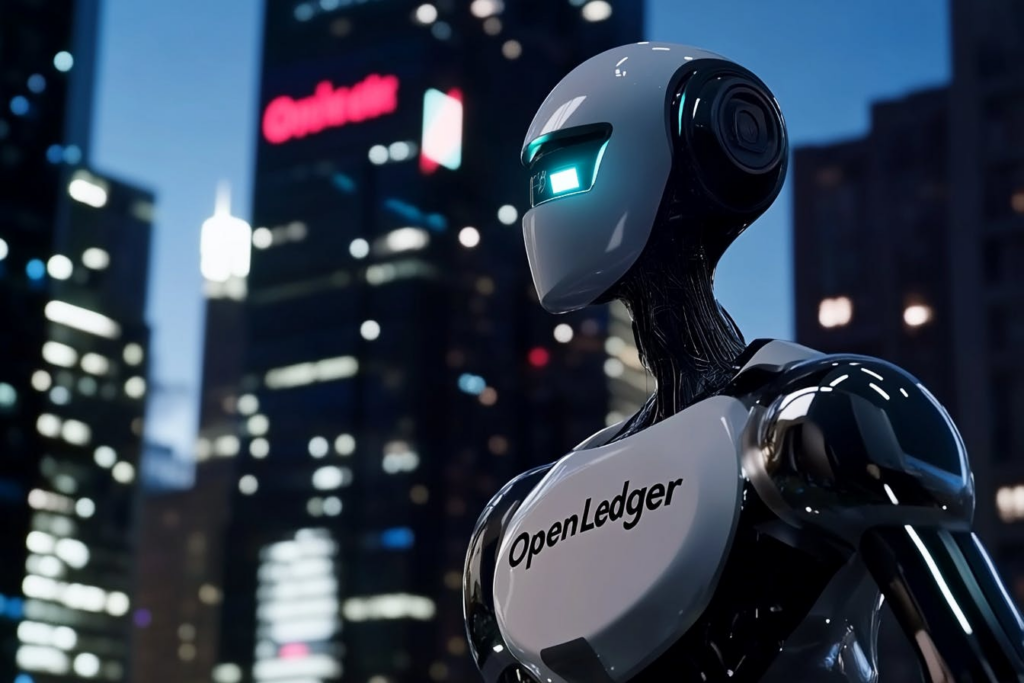OpenLedger, a blockchain platform focused on AI development, has partnered with Ether.fi to strengthen network security through a $6 billion infrastructure deal. The partnership connects OpenLedger’s AI development platform and Ether.fi’s restaking system, bringing enterprise-level security to decentralized AI development.
This partnership comes at a key moment in OpenLedger’s growth, as the company prepares to launch a testnet for AI model development. The timing is particularly significant following OpenLedger’s recent $8 million funding round with participation from Polychain Capital and Borderless.
This partnership addresses a fundamental challenge in AI development: how to maintain security while processing large amounts of data across distributed networks. Ether.fi’s restaking infrastructure provides a solution by allowing staked ETH to be reused as security collateral, providing a robust solution for AI model development without the need for additional capital investment. Build the foundation.
Technical implementation focuses on creating a secure environment for AI training and development. When developers use OpenLedger’s platform to create and train AI models, their work is protected by Ether.fi’s security infrastructure. This means sensitive data and AI models are kept secure during the development process, which is a key requirement for enterprise-level AI development.
Mike Silagadze, CEO of Ether.fi, explains that this infrastructure will specifically support developers who need specialized models and a secure environment for AI training. This practical approach shows how blockchain technology can solve real problems in AI development, especially in areas where data security is critical.
This partnership also marks a shift in how blockchain projects approach security. OpenLedger chose to establish a strong security infrastructure before expanding its business, rather than adding security measures after the expansion. This approach could impact how future blockchain AI projects develop their platforms.
The integration of Ether.fi’s restaking system with OpenLedger’s platform shows how blockchain technology can support AI development in a practical way. Developers now have access to a secure environment to train their AI models while maintaining data integrity throughout the development process.
More broadly, this partnership signals a mature approach to the integration of blockchain and AI. The focus on security and practicality shows that the field is moving beyond theoretical applications and toward real-world solutions. Emphasizing a verifiable environment for AI model development may become standard industry practice.
The launch of OpenLedger’s testnet with this enhanced security infrastructure provides developers with a practical environment to experiment with decentralized AI development. This testing ground has the potential to speed up the development of specialized AI models while maintaining high security standards.
From a technical perspective, this integration allows developers to work with AI models and datasets in a secure, distributed environment. This feature addresses growing concerns about data privacy and security in AI development, especially as AI models become more sophisticated and require larger amounts of training data.
The collaboration between OpenLedger and Ether.fi represents a significant step forward in building a secure infrastructure for AI development. As more organizations consider developing specialized AI models, the need for secure distributed development environments will increase. This partnership provides a blueprint for how to create and sustain such an environment.
This development may impact how future projects approach the integration of blockchain technology and artificial intelligence applications, especially in terms of security infrastructure and development environments.
Don’t forget to like and share your story!
Disclosure of vested interest: This author is an independent contributor publishing through our Business Blog program. HackerNoon has verified the quality of the report, but the claims here belong to the author. #DYOR



